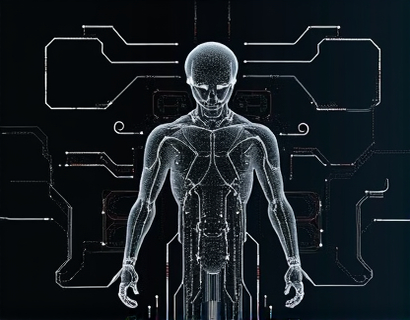AI Certification Innovations: Validating Skills for Digital Success
The digital age has ushered in a new era of technological advancements, with artificial intelligence (AI) at the forefront. As AI continues to transform industries and create new job opportunities, the need for skilled professionals who can validate their expertise through recognized certifications has become paramount. This article explores the innovations in AI certification, focusing on how specialized accreditation is validating skills and knowledge, thereby enhancing career and educational potential.
Evolving Landscape of AI Certifications
The landscape of AI certifications has evolved significantly, moving beyond generic credentials to offer specialized accreditations that reflect the nuanced skills required in the tech industry. These certifications are designed to validate not just the theoretical knowledge but also the practical skills of individuals through completed tasks and educational milestones. This approach ensures that certified professionals are not only knowledgeable but also capable of applying their skills in real-world scenarios.
Specialized Credentials for Enhanced Credibility
Specialized AI credentials are becoming increasingly important as they provide a clear and concise way to demonstrate expertise in specific areas of AI. These credentials are earned through a combination of coursework, hands-on projects, and assessments that simulate real-world challenges. By obtaining such specialized credentials, professionals can significantly enhance their credibility and stand out in a competitive job market.
Task-Based Learning and Assessment
One of the key innovations in AI certification is the shift towards task-based learning and assessment. Instead of relying solely on multiple-choice exams, these programs require candidates to complete practical tasks that demonstrate their ability to solve problems and apply AI concepts. This method ensures that certified individuals have not only learned the material but can also execute it effectively.
For instance, a certification program might include a project where candidates must develop an AI model using a specific framework, such as TensorFlow or PyTorch. The candidate's submission is then reviewed by industry experts who assess the quality of the code, the efficiency of the model, and the ability to explain the decision-making process. This comprehensive evaluation provides a more accurate measure of a candidate's skills compared to traditional testing methods.
Educational Milestones and Continuous Learning
AI certification programs are also designed to support continuous learning and professional development. These programs often include a series of educational milestones that candidates must achieve to progress through the certification process. Each milestone represents a significant step in mastering AI concepts and technologies, ensuring that learners are consistently challenged and engaged.
These milestones can range from foundational courses on AI principles to advanced topics like deep learning, natural language processing, and computer vision. By completing these milestones, candidates build a robust foundation in AI and stay updated with the latest trends and technologies in the field.
Maximizing Career and Educational Potential
Obtaining AI certifications can significantly boost an individual's career prospects and educational credentials. In an industry where skills are rapidly evolving, having a recognized certification can be a decisive factor in securing employment or advancing in a career. Employers increasingly look for candidates with verified skills, and AI certifications provide a tangible proof of competence.
Moreover, these certifications can open doors to new opportunities, such as leadership roles, research positions, or specialized jobs in AI development and deployment. For students and professionals alike, AI certifications serve as a stepping stone to higher education and advanced training, fostering a lifelong learning mindset essential in the tech industry.
Enhancing Job Prospects
The job market for AI professionals is highly competitive, and certifications can help candidates differentiate themselves from others. A recognized AI certification demonstrates to potential employers that the candidate has undergone rigorous training and has been assessed by industry experts. This validation can lead to better job offers, higher salaries, and more significant career growth opportunities.
Additionally, many companies offer internal training programs and certifications to their employees, which can further enhance job security and career advancement within the organization. Professionals who actively pursue and maintain their certifications show a commitment to continuous improvement and a willingness to adapt to new challenges.
Building Professional Credibility
Professional credibility is crucial in the tech industry, where innovation and expertise are highly valued. AI certifications serve as a mark of professionalism and dedication, signaling to peers, clients, and employers that the certified individual is knowledgeable and competent in their field.
Certifications also facilitate networking opportunities, as certified professionals often join communities and forums where they can share knowledge, collaborate on projects, and stay informed about industry developments. These connections can lead to valuable mentorship, partnerships, and job referrals, further enhancing one's professional network.
Global Recognition and Mobility
Another significant advantage of AI certifications is their global recognition. In a highly mobile job market, having a certification from a reputable institution can be beneficial for professionals looking to work in different countries or for companies with international operations. These certifications are often recognized across borders, providing a level of standardization that transcends geographical boundaries.
This global acceptance not only broadens job opportunities but also allows professionals to contribute to international projects and collaborate with a diverse range of colleagues, enriching their professional experience and skill set.
Future Trends in AI Certification
The future of AI certification is likely to see further innovations aimed at addressing the dynamic nature of the tech industry. One trend is the integration of AI itself into the certification process, using adaptive testing and personalized learning paths to tailor the certification experience to each candidate's strengths and weaknesses.
Another trend is the increasing collaboration between educational institutions, industry leaders, and certification bodies to ensure that certifications remain relevant and aligned with the latest technological advancements. This partnership can lead to the development of new certifications that focus on emerging areas such as AI ethics, explainability, and sustainability.
Conclusion
In conclusion, AI certifications play a vital role in validating skills and knowledge in the rapidly evolving tech landscape. By offering specialized credentials that reflect practical expertise, these certifications enhance professional credibility, job prospects, and educational potential. As the demand for AI professionals continues to grow, embracing these certifications will be essential for individuals looking to succeed and thrive in the digital age.










































